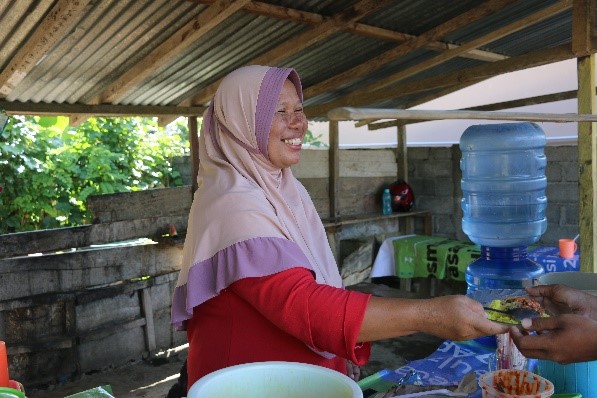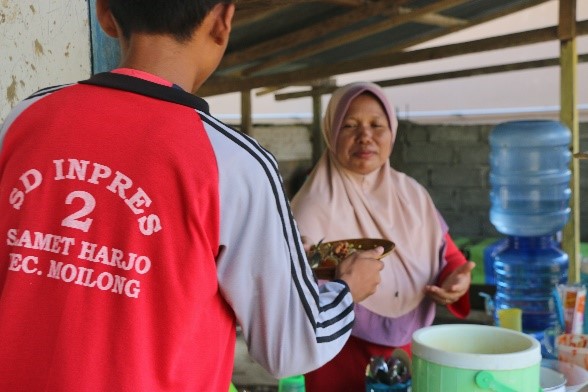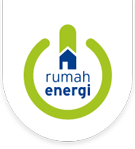The figure of Mrs. Narmi the Yellow Rice Seller (Women in Improving Family Economy)

The role of women in the household is identified with domestic matters such as cooking and caring for children. But now women have begun to dare to actualize themselves and improvise. Even in urban terms, the career woman is no longer taboo.
The phenomenon of women working for some rural communities is still rare, but that does not mean that women cannot contribute to the family economy. One way that can be done is by entrepreneurship. The portrait of women who not only take care of their household affairs but also actively contribute to the activities of improving the family’s economy can be seen in the figure of Mrs. Narmi.
Mrs. Narmi is the wife of Mr. Andri, one of the biogas users in Sumberharjo Village, Miolong District, Luwuk-Banggai Regency, Central Sulawesi. As an important part of the Productive Economic Zone Development Program through the Conservation of Energy which is being endorsed by the Rumah Energi Foundation and JOB Tomori, the role of beneficiaries is a key indicator that can determine the success of this program. Since using biogas, which was installed in mid-2019, Ms. Narmi felt that she was greatly helped in her entrepreneurial activities as a seller of yellow rice.
“Since I have biogas, I have been able to save on gas to cook yellow rice. Usually, a month can be used up to 15 gas cylinders and use a lot of firewood. “

Early in the morning Ibu Narmi had awakened to cook yellow rice and side dishes as a complement. He usually does cooking at 3:30 a.m. local time. At around 5:30 he rushed to tidy up his wares and was escorted by his son to the Inpres 2 Elementary School in Slametharjo Village to sell. Arriving there, do not need much time to wait for the buyers. One by one they came and were immediately served kindly by Ms. Narmi. Yellow rice customers ranging from students to teachers at the school. Interestingly, he did not set the price for one portion of yellow rice. Orders tailored to the ability of the buyers.
“One portion is usually two thousand, three thousand, there are also five thousand … Depending on the wishes of the children who buy. Alhamdulillah, every day is always gone. I can get up to seventy-five thousand clean every day. Alhamdulillah. “
Meanwhile, Mr. Andri carries out activities as a farmer and cattle rancher. Biogas is not only beneficial for many domestic and entrepreneurial activities, the waste of biogas (bio-slurry) is also used by Pak Andri to grow water spinach in his yard. Biogas is a necessity for the families of Mr. Andri and Mrs. Narmi. It not only makes cattle cages cleaner, but also has benefits and more value, especially in cutting the production costs of Mrs. Narmi’s yellow rice business, which is now able to reduce dependence on subsidized gas.

